The Gentile Jewess
The prolific and iconic Scottish author Muriel Spark would have turned 100 this year. Spark’s slim novels, the most famous of which is The Prime of Miss Jean Brodie, explore the complexity and range of human motivation, coupling intellectual depth with a witty and deceptively light sensibility.
Recently at the 92nd Street Y, authors and colleagues gathered to pay homage to Spark by reading from her novels. The excerpts ranged from self-conscious meditations on the nature of art to wildly humorous excurses into the heart of Spark’s batty energy. Among many delightful characters, we were introduced to Lise, the deranged protagonist of The Driver’s Seat, who can’t even shop for clothing without sowing seeds of despair in her wake. It wasn’t until the end of the evening, however, that a key element of Spark’s identity was brought to the fore. Before the close of the event, a recording of a 1993 interview (incidentally made at the at the same location) brought Spark’s Scottish lilt booming into the room: “I write from a religious point of view because I believe in God. And I have a religion. I write not through the point of view of religion, but I write using religion as a point of departure, as a sort of compass point to measure from.”
Born Muriel Camberg in Edinburgh to a Jewish father and a Presbyterian mother (who also had Jewish lineage), Muriel Spark was raised a Protestant with strong ties to her Jewish extended family. After a tumultuous young adulthood—including an abusive marriage, divorce, and her virtual abandonment of her son (he was raised by his grandparents)—Spark threw herself into her writing. At the age of 36, Spark converted to Roman Catholicism, a move she believed contributed to her eventual success as a novelist. Her son, Robin, who became an Orthodox Jew, would eventually tell a different story about his mother’s origins, emphasizing the Jewishness of her maternal line. But Spark resisted her son’s narrative and continued to describe herself as a “Gentile Jewess.” She even wrote a 1963 short story for the New Yorker under the same title, and her life and works made her strong Catholic attachments clear. Regarding that story, Spark observed: “Am I Gentile? Am I a Jewess? Both and neither. What am I? I am what I am.”
This tension is explored most fully in The Mandelbaum Gate, which at more than 300 pages is also Spark’s lone “long novel.” Set in Jerusalem in 1961 during the period of the Eichmann trial, Mandelbaum Gate relates the Holy Land journey of Barbara Vaughan, an English schoolteacher in her late thirties who has recently embraced Roman Catholicism. In contrast with Spark, it’s Barbara’s father who is a Gentile and her mother who is Jewish. This swap only heightens Barbara’s identity conflict because it means that both religions can claim her.
Throughout Barbara’s travels in Israel, she is constantly reminded of her Jewish lineage—even the secular Israelis constantly ask her why a matrilineal Jew would voluntarily embrace a religion with a history of instigating pogroms and blood libels. For her part, Barbara sees herself as transcending the narrow binaries of Jew and non-Jew. Though she has converted to Catholicism, she feels her Jewish heritage is indelible. Speaking of her Jewish relatives, she writes: “Being a Jew isn’t something they consider in their minds, weigh up, and give assent to as one does in the Western Christian tradition. Being a Jew is inherent.”
Barbara is enraptured with Catholicism, and Spark’s heroine communicates this with a mixture of lyrical sincerity and subversive irony: “I’m a spinster that’s taken a religious turn. A Gentile Jewess, neither one thing nor another, caught up in a crackpot mystique.”
There’s no better setting to explore Barbara’s divided identity than divided Jerusalem. In 1961, the ancient parts of the city were under Jordanian control and the more recently constructed sections under Israeli control. For religious and personal reasons, Barbara is drawn to the Jordanian side, at the time home to many holy Christian sites and also the character’s love interest, a British archaeologist excavating the Dead Sea Scrolls in Qumran. Barbara’s problem is that while Gentile tourists were welcome in Jordan at this time, no Jews were allowed to enter through the Jerusalem crossing, the titular Mandelbaum Gate. Though she has converted to Catholicism, Barbara’s Jewish blood disqualifies her from entry.
Barbara manages to cross through the gate and her subsequent surreal experiences evading dangers, both present and imagined, in the Jordanian-occupied Holy Land form much of the drama of the novel. While on the Jordanian side, Vaughan meets a cast of colorful characters including Freddy Hamilton, a neurotic British consular official who is moved by Barbara’s conviction and determined to help her, though his meddling creates many of her problems. There is also Suzi Ramdez, the attractive daughter of a corrupt and tyrannical Palestinian informant who seeks a different future for herself. Miss Rickward, Vaughan’s irritating, ambiguously lesbian colleague from England also shows up at some point to retrieve Vaughan, but oddly ends up bedded with Suzi’s father and becomes a newly minted admirer of Islam.
While Spark is far from a political writer, the novel contains a perceptible subtext contrasting the Arab and Israeli claims on Jerusalem. The Arabs Barbara encounters are constantly reimagining themselves, inventing histories of orange groves they once supposedly possessed in Jaffa, and nimbly adapting political affiliations and personal narratives for the edification of their Western listeners. This disposition both intrigues Barbara and puts her off. The Jews she meets generally present themselves as they are, and it is Barbara who is left fumbling for a firmer and more rooted identity. Provoked by one particularly dismissive tour guide, “Barbara knew then that the essential thing about herself remained unspoken, uncategorized and unlocated. She was agitated, and felt a compelling need to find some definition that would accurately explain herself to this man.” The Jordanian government offers no solace; it is paranoid and self-defeating in its hatred of Israel (a country whose name goes unuttered) and consequently of all Jews. Barbara’s experience in Israeli-run Jerusalem is gentler and less anxiety-inducing. When she finally crosses back through Mandelbaum Gate into Jewish Jerusalem, the narrator writes that she “wanted to run along the pavements of the sweet, rational streets.”
Ultimately, however, Spark does not seek to make any metaphysical or geopolitical arguments about Jerusalem. She is interested in the human beings that reside there, with all of their flaws. As she wrote in a later novel, Loitering with Intent, that was quoted in the 92nd Street event, “I was aware of a daemon inside me that rejoiced in seeing people as they were.” For herself, she hoped that harmonization of major pieces of her own identity was within reach. As she would write in a different context, “I do not continually think of myself as a Gentile Jewess, or of the world as a specifically Gentile-Jewish complex. But what I felt as a child I now hold as a belief: the true dimensions of our lives are greater than they appear to be.”
Comments
You must log in to comment Log In
Suggested Reading

Harvard, SNCC, and an Antisemitic Cartoon
How did Harvard students end up using a decades old antisemitic cartoon in their anti-Israel activism?
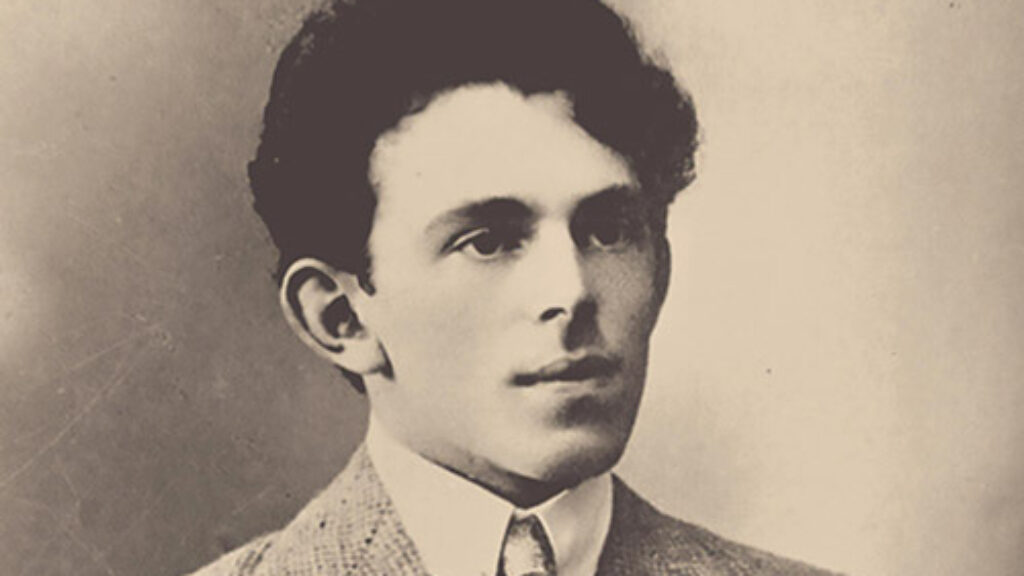
The Russian Joseph
Osip Mandelstam thought being a writer in the Soviet Union was “incompatible with the honorable title of Jew.” Stalin didn’t like Jewish writers in general and disliked the poem about his “cockroach mustache” in particular.
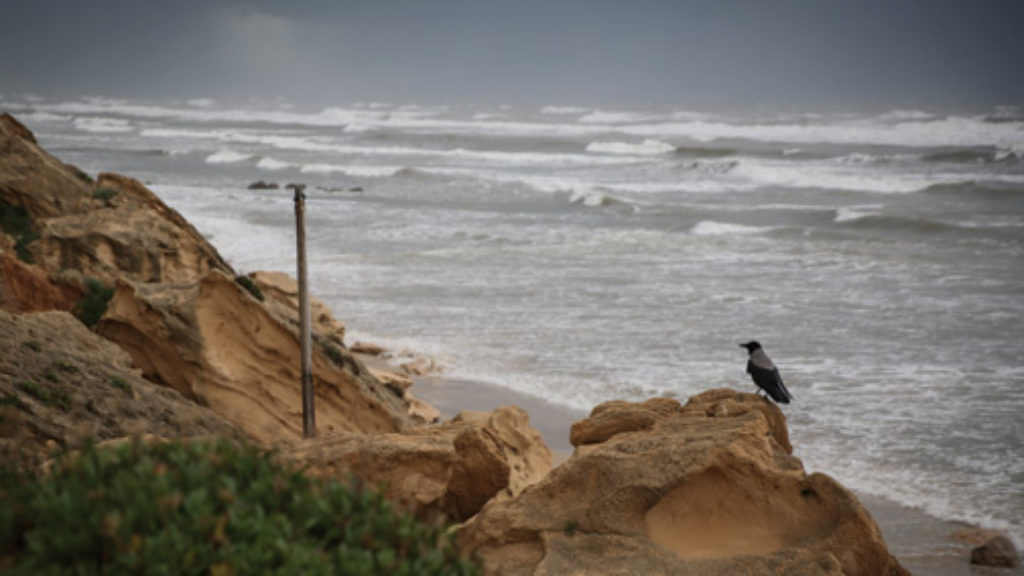
Not by the Rivers of Babylon
It turns out that Israel sits on a “saddle point” between four weather systems. The rabbis of the Talmud didn’t know that, but they did have some interesting things to say about rain.
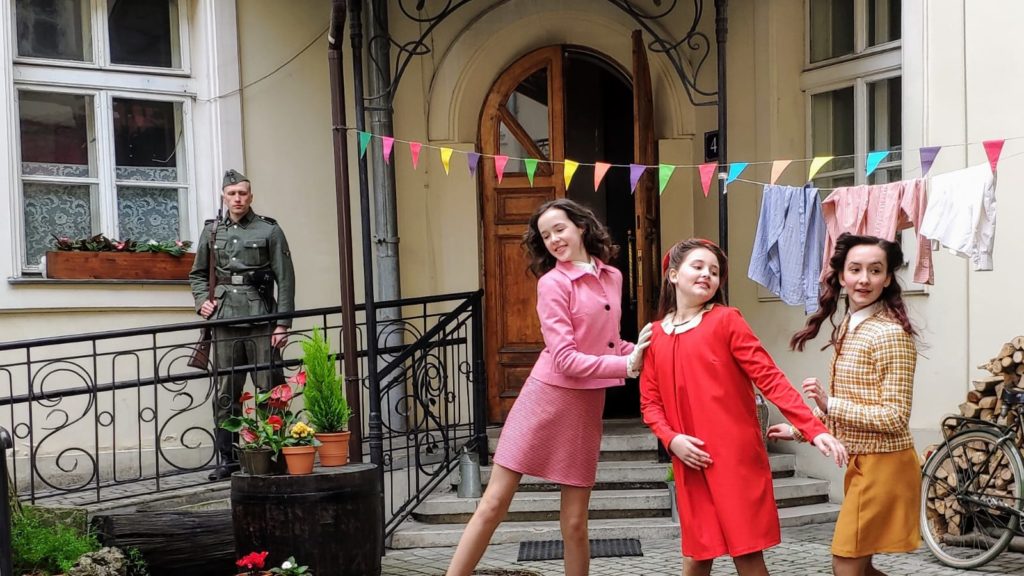
Instagramming the Holocaust
This Holocaust Memorial Day, an online project known as Eva’s Stories is uploading snippets of video every 30 minutes to the @eva.stories Instagram page.
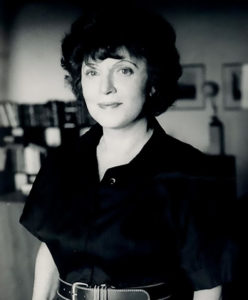
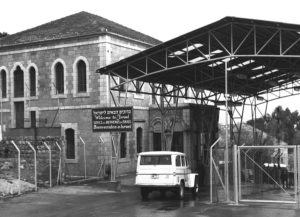
Alexander Gendler
A tragic story of a 100% Jewish girl (because her father is Jewish) whom major Jewish tradition does not see as a Jew and whose son refused to legally (within the halakha) consider his mother by having undergone orthodox conversion.